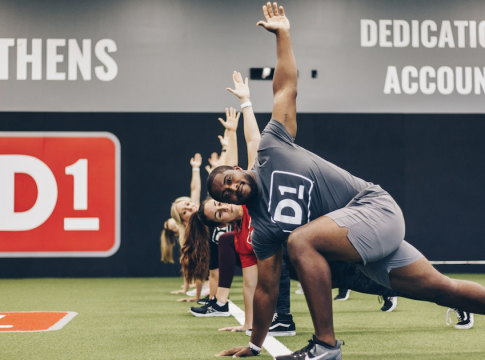D1 Training: Franchise Troubles and the Pursuit of Profitability
D1 Training, an athletic training franchise promoting personal and group fitness programs, is facing significant legal challenges from franchisees across the country. The core of these disputes revolves around allegations of misrepresentation and financial deception that have left several franchise owners in precarious financial situations.
The Allegations Unveiled
Franchisees claim that D1 Training misled them regarding the potential profitability of their businesses, citing false narratives about involvement from high-profile athletes like Peyton Manning and Chris Paul to substantiate sales claims. Many asserting that they were promised lucrative profits but ended up grappling with enormous losses instead.
Bill Beckham, a franchisee in Cincinnati, voiced his frustrations, explaining that he invested almost $1 million into his D1 location, significantly higher than the estimated costs provided by the company. Two and a half years later, Beckham has yet to turn a profit. In 2024 alone, he lost around $300,000, facing potential bankruptcy due to ongoing monthly losses of $20,000 to $25,000.
Financial Transparency: A Critical Look
Franchisees assert that D1’s financial representations have skewed reality, leaving them vulnerable to financial ruin. They allege that projected average monthly client revenue figures, which were claimed to be around $235, fell dramatically short of the actual revenue received, which hovered below $200. This misinformation, they argue, is part of a broader scheme to extract profits from new franchise sales rather than focusing on supporting existing locations.
Key Takeaways:
- Transparent Communication is Vital: Ensure open dialogues about financial forecasts and operational challenges before committing.
- Conduct Thorough Research: Prospective franchisees should investigate existing franchisee experiences, especially regarding profitability and support.
The Franchisor’s Response
In response to these serious allegations, D1 Training CEO Will Bartholomew has categorically denied the claims, stating that the franchise model is viable and beneficial for those engaged. He emphasized that while challenges exist, they are not indicative of the model’s failure but rather complexities in franchise management.
Bartholomew believes that with adequate attention and support, franchises can thrive, asserting that semi-absentee ownership is feasible when paired with a strong management team.
The Athlete Connection and Franchise Appeal
The allure of D1 Training also stems from its association with prominent athletes who serve as brand ambassadors. However, many franchisees feel they were misled about the depth of athlete involvement, including promised promotional appearances that never materialized.
Motivation for Prospective Franchisees:
- Explore All Options: Potential franchise owners should critically assess the promises made by franchisors.
- Network with Other Franchisees: Build a support system by connecting with existing franchisees, as they can offer honest insights and experiences.
Conclusion: Building a Sustainable Path Forward
While the challenges faced by D1 Training franchisees spotlight the importance of transparency and accountability within the franchising world, they also underline an opportunity for reflection and improvement. For fitness enthusiasts exploring entrepreneurial ventures, this story serves as a crucial reminder: do your homework, seek clarity, and foster connections. The goal is not only to succeed but to build a community where everyone can thrive.
In fitness, as in business, knowledge and preparation are key to overcoming obstacles. Whether you’re a new franchisee or simply interested in the health and wellness industry, understanding the landscape can help navigate the journey toward stability and success.

Covers wellness, nutrition, mental health, and daily life tips.
Bio: Talia brings a background in health journalism and holistic living to help readers live better, one tip at a time.

